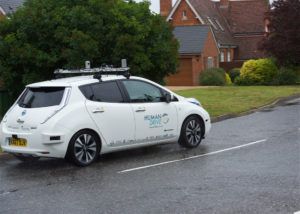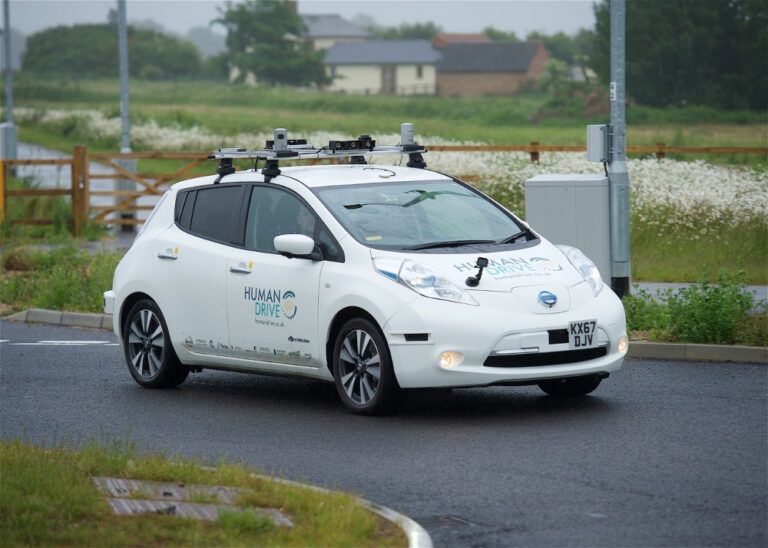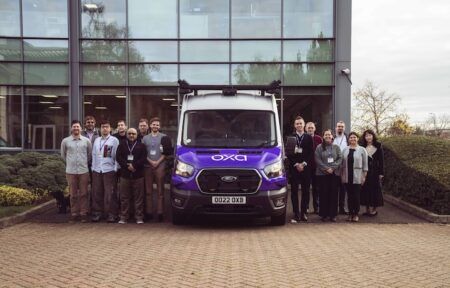A consortium delivering the UK’s most ambitious connected and autonomous vehicle (CAV) project is close to completing its primary aim; a complex real-world journey that is both fully-automated and human-like for the benefit of the occupant and other road users.
Jointly funded by government and industry and led by Nissan Technical Center Europe (NTCE), the 30-month HumanDrive project will see an autonomous vehicle self-navigate a 230 miles (370km) long journey across the UK over country roads, high speed roundabouts, A-Roads and motorways; and all performed through live traffic and in natural conditions. In addition, the HumanDrive project will seek to take autonomous technology to the next level in terms of ride comfort and adaptability by adopting natural road positioning and a more human-like driving style. The project has received investment from the government’s £100m (US$123.4m) Intelligent Mobility fund, which is administered by the Centre for Connected and Autonomous Vehicles (CCAV) and delivered by the UK’s innovation agency, Innovate UK.
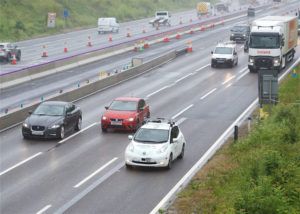 To achieve its ambitions, the project has drawn upon the expertise of a world-leading consortium:
To achieve its ambitions, the project has drawn upon the expertise of a world-leading consortium:
- Nissan is leading on the development and testing of the next generation autonomous vehicle that will soon complete the ‘Grand Drive’;
- Hitachi is developing an advanced machine-learning artificial intelligence (AI) to control the vehicle’s perception and decision making;
- University of Leeds is responsible for defining the user requirements and developing a driver risk model using trials data captured from their simulator and live testing;
- Cranfield University is validating the technology through a digital model, and has supported the trials, demonstration and experimental validation, using its advanced Multi-User Environment for Autonomous Vehicle Innovation (MUEAVI) test track;
- Engineering and project management consultancy Atkins Ltd is ensuring that all cyber security precautions have been considered, including the publication of the Cyber Security Framework that provides assurance to the public that the security risks associated with CAV technology are being appropriately managed;
- Highways England (HE) is exploring the impact of CAVs on the transport system;
- Simulation software developer Aimsun Ltd is supporting HE in the study of the impact on the transport system;
- HORIBA MIRA is providing test facilities and helping to ensure the safety of other road users, as well as passengers and safety driver;
- Technology consultancy SBD Automotive is supporting the cyber security aspects of the project;
- Connected Places Catapult (formerly the Transport Systems and Future Cities Catapults) is responsible for project management, dissemination and safety case elements of the project.
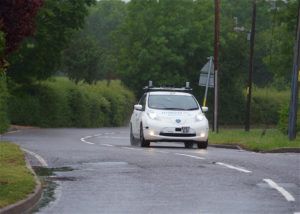
“We are getting close to delivering on our main aim, a 230-mile Grand Drive across the UK, through live traffic and some very challenging road networks,” said Robert Bateman, HumanDrive project manager for NTCE. “Our consortium partners have given a tremendous push to get us to this point, and we’ve made some significant learnings along the way as we develop this human-like autonomous driving style.”
Rav Babbra, innovation lead for the automotive team at Innovate UK, added, “The HumanDrive project is a fantastic example of the dynamic collaboration of businesses and universities supported by the government’s Intelligent Mobility fund.”